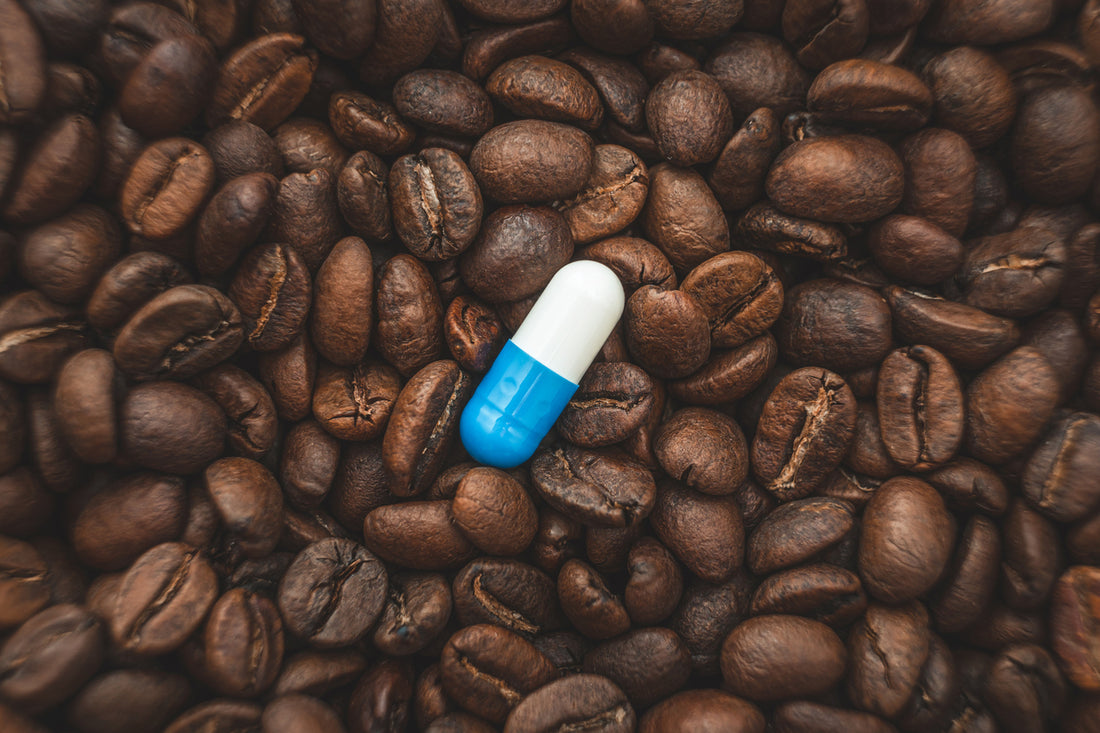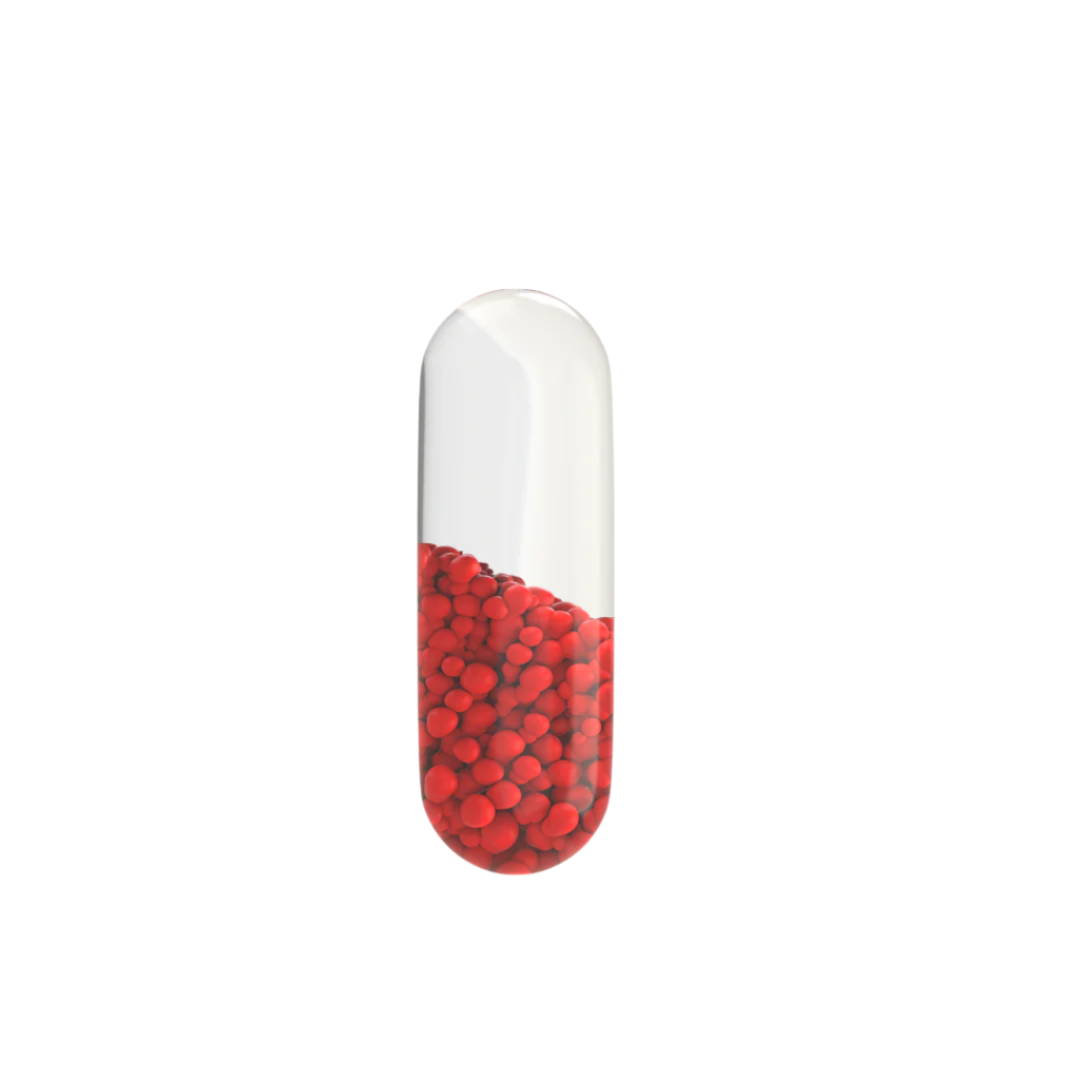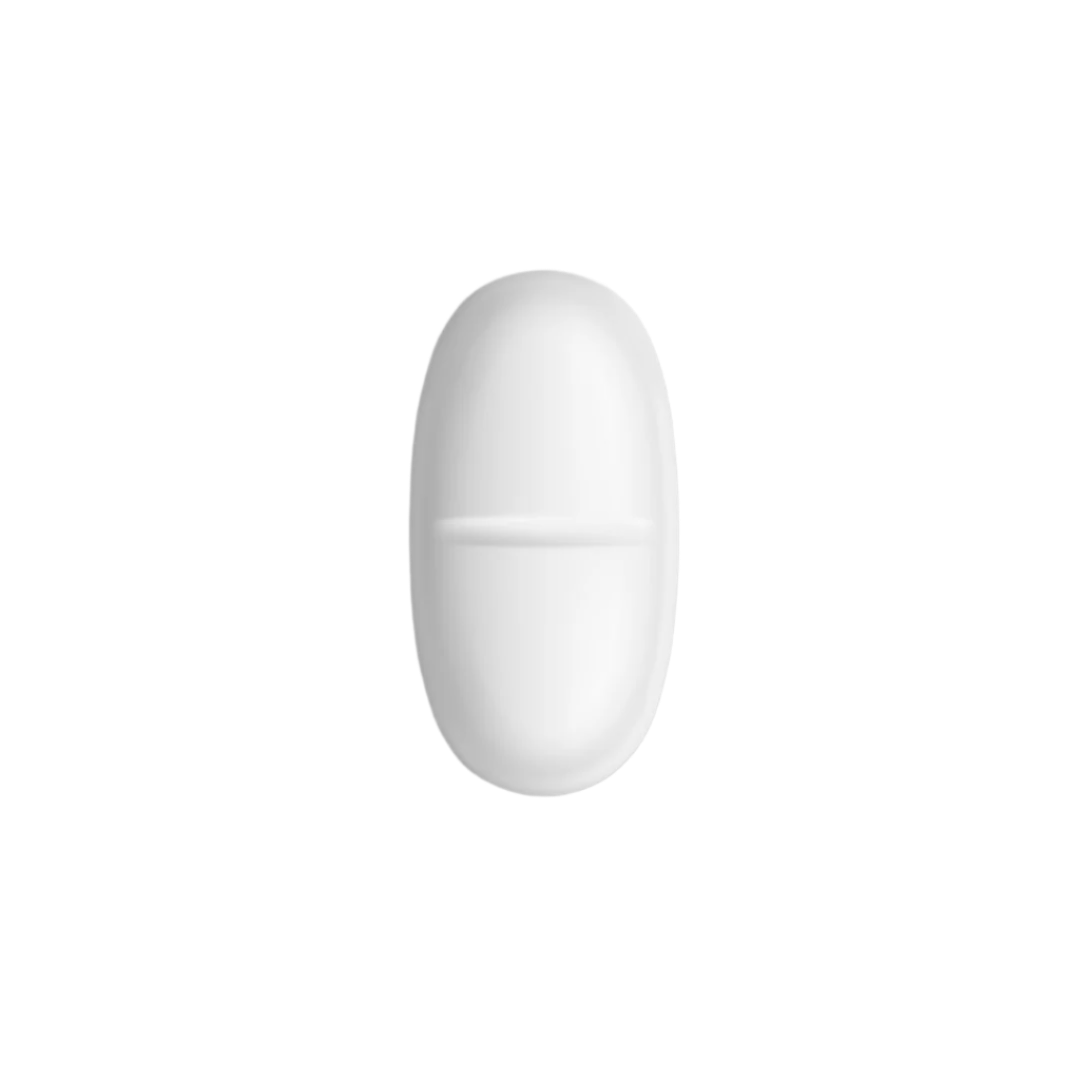Are Caffeine Pills Safe? Learn How They Affect Sleep and Waking Up

- Caffeine pills are a popular way to gain a boost of energy and alertness, but it is important to understand how they work and how they can affect your sleep and wake-up process. Caffeine side effects can include anxiety, dizziness, dysphoria, fast heart rate and high blood pressure, headache and sleep problems.
- Certain groups of people, such as those with liver disease, heart problems, high blood pressure, and stomach ulcers, should avoid caffeine pills altogether.
- Alternatives to caffeine pills for waking up include drinking water, exercising, taking a cold shower, meditating, and taking a wake-up supplement like B・SYNC ON.
- B・SYNC ON is designed to help ease you into consciousness, avoiding the adverse effects of powerful stimulants and the crash that can often follow their use.
Caffeine pills, also known as caffeine tablets, are a common and popular tool for boosting energy and alertness. They can be taken as an alternative to coffee and other caffeinated beverages or simply used as a convenient way to get a boost of energy. However, it is important to understand how they work and how they can affect your sleep and wake up.
Caffeine pills work by providing a quick release of caffeine into the bloodstream, which can give you a temporary boost of energy and alertness. While this can be beneficial during the day, it can also interfere with sleep at night. Caffeine stimulates the central nervous system, which can make it harder to fall asleep and stay asleep.
Additionally, if you take a caffeine pill too close to your bedtime, it can affect your waking up. Caffeine remains in your system for several hours after ingestion and can cause you to wake up earlier than normal. This can be especially disruptive if you rely on a consistent sleep schedule.
Overall, caffeine pills can be a safe way to gain a boost of energy and alertness. However, it is important to consider how they will affect your sleep and waking up and take them with caution. There are also a few alternatives to improving your wake-up and sleep that are healthier than relying on caffeine, and we will talk about them in this article.
What is Caffeine? Is it Problematic?

Caffeine has been called the most popular drug in the world for good reason - it is used in many forms and by many people. It is found in coffee, tea, energy drinks, soda, chocolate, and even some medications. Caffeine is a stimulant, which means it can help to increase alertness and improve focus.
However, it can also be problematic. Caffeine can be addictive and can lead to tolerance and dependence. It can also cause insomnia and disrupt sleep patterns. Caffeine can also increase anxiety, which can make it difficult to relax and get to sleep. In addition, caffeine can increase heart rate and blood pressure, which can be dangerous for those with certain health conditions.
How Caffeine Affects Sleep
The most important thing to know about caffeine is that it is an intense stimulant. It doesn't take long to begin acting on your body, and its effects can last for hours.
Caffeine stimulates the central nervous system, which can make it difficult to relax and get to sleep. It can also interfere with your body's natural sleep cycles, making it hard to stay asleep.
In addition, caffeine can increase your heart rate and blood pressure. This can be dangerous if you have a heart condition or high blood pressure.
The other major issue with caffeine is how your body reacts when the effects wear off. For example, if you wake up by taking caffeine pills, you are likely to crash once the caffeine wears off. This can leave you feeling fatigued and make it harder to function during the day. It can also affect your mood and energy levels during the moments when you want to be your most productive.
Caffeine Pills vs. Coffee: How Long Do Caffeine Pills Take to Kick In?

The active ingredients in both caffeine pills and coffee are the same - caffeine. However, there are some key differences that you should be aware of.
First, caffeine pills are more concentrated than coffee. This means that caffeine pills can provide a more intense boost of energy and alertness, but it also means that you may experience more intense caffeine side effects.
Second, caffeine pills provide a more immediate release of caffeine into your bloodstream. This can be beneficial if you need an energy boost quickly, but it can also make it more difficult to fall asleep at night.
Finally, caffeine pills are not associated with the same health benefits as coffee. While coffee can provide antioxidants and other beneficial compounds, caffeine pills do not contain the same health benefits.
How Much is Too Much Caffeine?
According to the FDA, approximately 400 milligrams of caffeine a day is considered safe for people. However, there are some caveats to this in both the people consuming the caffeine as well as the dose and concentration. For children and adolescents, the amount of caffeine should be lower than 400 milligrams a day. Additionally, people with certain medical conditions may need to further reduce their caffeine intake.
It is also important to understand that different forms of caffeine can affect you differently. For example, caffeine pills provide a more intense and immediate boost of caffeine, while coffee provides a more gradual release. Therefore, it is important to understand your own body and what works best for you.
Overall, caffeine can be a helpful tool for boosting energy and alertness, but it is important to understand how it can affect you and your sleep. When used in moderation, caffeine can be a safe and effective way to increase alertness and improve focus. However, it is important to take caution, listen to your body, and understand how it can affect your health.
Caffeine Side Effects and Risks of Caffeine Pills

Caffeine pills can lead to adverse effects, especially when consumed in large quantities. Some of the possible caffeine tablet side effects include, among others:
Anxiety and Nervousness
Especially for people who have a sensitivity to caffeine, anxiety is a possible adverse effect of caffeine that is best avoided. Since caffeine pills are taken in concentrated doses, the effects can be more pronounced and more difficult to control.
Dizziness
When you first take a caffeine pill and it enters your system, it can cause a feeling of dizziness. This can be accompanied by a feeling of lightheadedness and can make it difficult to focus or concentrate.
Dysphoria
It's possible to experience a negative impact on your mood, leading to feelings of depression or dysphoria. This can be especially pronounced when you take caffeine pills, as their effects can be more intense.
Fast Heart Rate and High Blood Pressure
Caffeine can lead to an increase in your heart rate and blood pressure, which can be dangerous if you have certain health conditions. It is important to talk to your doctor if you have any concerns.
Headache and Sleep Problems
Taking these pills can make it difficult to get to sleep and stay asleep, which can lead to feelings of fatigue and difficulty functioning during the day. Additionally, if you take caffeine too close to bedtime, you may experience a headache the next day, and you may experience lower energy levels and moods when waking up.
Who Should Avoid Caffeine Pills

If you’ve been drinking coffee or thinking about trying caffeine pills, you are probably wondering, “Are caffeine pills safe to take every day?”. While caffeine tablets are safe, there are some groups who should absolutely avoid taking caffeine pills for waking up every day due to some of the potentially serious caffeine tablet side effects.
People With Liver Disease
Liver disease affects the ability of the liver to process caffeine. Taking caffeine pills or caffeine tablets can cause an overload of caffeine in the body which can be dangerous.
People With Heart Problems
Caffeine can increase blood pressure and heart rate, which can be dangerous if you have heart problems.
High Blood Pressure
High blood pressure is a risk factor for stroke and heart attack, so it is important to be cautious with caffeine.
People With Stomach Ulcers
Caffeine can increase stomach acid levels and aggravate existing ulcers.
Caffeine pills can be a convenient way to get a boost of energy and alertness. However, it is important to understand how they can affect your sleep and wake-up process and to be aware of the potential side effects and risks. If you are sensitive to caffeine or have certain health conditions, it is best to avoid caffeine pills altogether.
Alternative Ways of Waking Up
While caffeine is a popular method of waking up, whether by drinking coffee or taking caffeine pills, there are other ways of waking up that will give you more natural energy and a boost for your morning.
Wake-Up Supplements Like B・SYNC ON

Wake-up supplements like B・SYNC ON are designed to help you start your day with more energy and in a better mood. B・SYNC ON is taken the night before, and is the only supplement designed to support and improve your wake-up process. It has just four natural ingredients, including vitamin B5, vitamin B12, zinc and caffeine, which are stored in each pill.
You can take B・SYNC ON at bedtime, and it will begin releasing the nutrients approximately 7 hours later. When waking up, this has the effect of a more gradual and effortless wake-up, improving your energy and helping you avoid the harshest effects of caffeine.
Unlike caffeine pills or a cup of coffee, B・SYNC ON is designed to help you ease into your wake-up, avoiding the adverse effects of powerful stimulants and the crash that can often follow their use.
Additionally, B・SYNC ON helps to align your circadian rhythm to your schedule, creating a more sustainable wake-up and sleep schedule for the future. Unlike caffeine pills, you will continue to see the positive effects of a healthier sleep and wake-up throughout the day.
Learn more and try B・SYNC ON today and shop online for your first pack.
Drink Water
Drinking water first thing in the morning can help you feel more alert and energised. Drinking water first thing in the morning can also help to flush out toxins and start your day with a healthy habit.
Exercise
Exercising can be a great way to wake up and get your body going. Adding just 10 minutes of exercise to your morning routine can help to increase alertness and improve your mood.
Take a Cold Shower
Taking a cold shower can be a shocking but effective way to wake up. Cold water can stimulate your body and help to get your mind ready for the day.
Meditate
Meditating can help to clear your mind and give you a sense of clarity. It can be a great way to start your day off on the right foot and give you the energy you need to tackle the day ahead.
Frequently Asked Questions
Are caffeine pills safe?
Caffeine pills or caffeine tablets can be safe if taken in moderation and with caution. However, it is important to be aware of the potential side effects and risks, as well as the potential for addiction and tolerance. It is also important to understand how caffeine can affect your sleep and waking up.
How much caffeine is in a caffeine pill?
Caffeine pills usually contain anywhere from 200 to 400 milligrams of caffeine per pill. However, this can vary depending on the brand and concentration.
How do caffeine pills work?
Caffeine pills work by providing a quick release of caffeine into the bloodstream, which can provide a temporary boost of energy and alertness.
Can caffeine pills help me wake up?
Caffeine pills can help to wake you up, but it is important to understand how they work and how they can affect your sleep and wake up. Additionally, there are healthier alternatives to improving your wake-up and sleep processes.
How does B・SYNC ON differ from caffeine pills?
B・SYNC ON is a wake-up supplement that contains four natural ingredients, including vitamin B5, vitamin B12, zinc and caffeine. It is taken the night before and releases the nutrients approximately 7 hours later, providing a more gradual wake-up.







